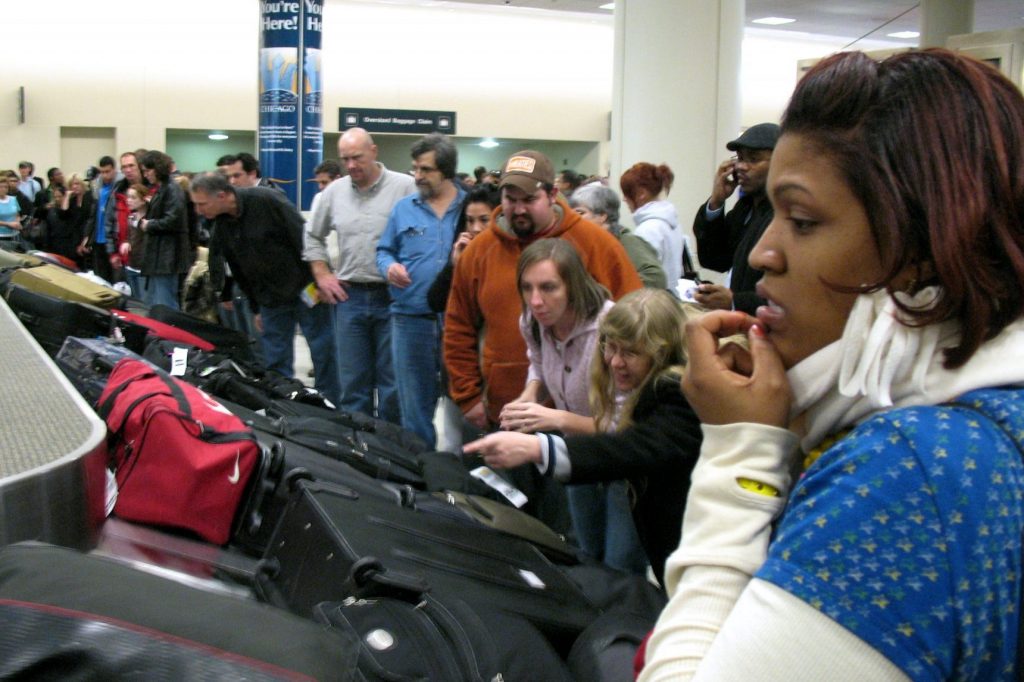Skift Take
Arriving at your destination without your luggage is never fun, and not practical. The Biden administration is trying to change the burden from consumers to airlines.
In an effort to level the field for consumers, the U.S. Department of Transportation is proposing two rules making changes to the handling of refunds for checked bags and other passenger services, said a source familiar with the matter, not authorized to speak.
Currently, if an airline loses a passenger’s bag, a passenger is entitled to a refund if they paid to check bags and the airline declares the bag lost. While most airlines will generally declare a bag lost anywhere from five days to two weeks after the flight, the process varies by airlines, the U.S. Department of Transportation refund website states.
Instead, the the first rule proposal will make airlines liable for a refund for delayed checked luggage if it’s not delivered within 12 hours of a U.S. flight or 25 hours of an international flight arriving in the U.S., the source familiar with the matter said.
“It’s long overdue that an airline should not be able to charge you for a service and then when they don’t provide the service keep your money,” said Paul Hudson, president of FlyersRights, a non-profit passenger rights organization.
Under the basic contract laws, the seller doesn’t get to keep the consumer’s money if they don’t provide the service or product, Hudson said.
“But what airlines have been doing is keeping people’s money especially when they pay for premium service for baggage and for a variety of reasons, they don’t perform it,” he added.
The announcement expected in the coming days after U.S. President Joe Biden signs an executive order will include airlines also promptly refunding passengers for services paid for and not received, including advanced seat selection and Wi-Fi, the person familiar with the matter said.
The reason behind the change in the rulemaking is to help families save money, ensure passengers are getting what they pay for and that they can shop for services equally, the source familiar with the matter said.
The second part of the executive order and D.O.T. proposed rulemaking expected a few months from now will be requiring upfront disclosure of airline fees such as change fees, cancellation fees and baggage fees at the time of purchasing an airline ticket to prevent passengers from getting hit with hidden fees, the source familiar with the matter said.
Hudson said this rulemaking will presumably require airlines to refund a passenger if for example, they pay for a seat upgrade in economy with more leg room, but are given a cramped seat once on the plane. However, the burden for the refund is always on the passenger, he added.
While a passenger could always sue the airline, they’re probably not going to get anywhere with that and for most people spending that kind of money is not worth it, Hudson said. Even if passengers file a claim in small claims court, airlines have the right to transfer it to federal district court, and Hudson believes unless the claim is over $100,000, it doesn’t make sense financially.
But having a formal regulation instead of a vague law or policy will allow an airline ignoring it to be fined by the government, Hudson said.
The Daily Newsletter
Our daily coverage of the global travel industry. Written by editors and analysts from across Skift’s brands.
Have a confidential tip for Skift? Get in touch
Tags: airlines, checked bags, us department of transportation
Photo credit: Passenger is worriedly looking for her checked luggage on the carousel. TheeErin/ Flickr / Skift/Flickr
